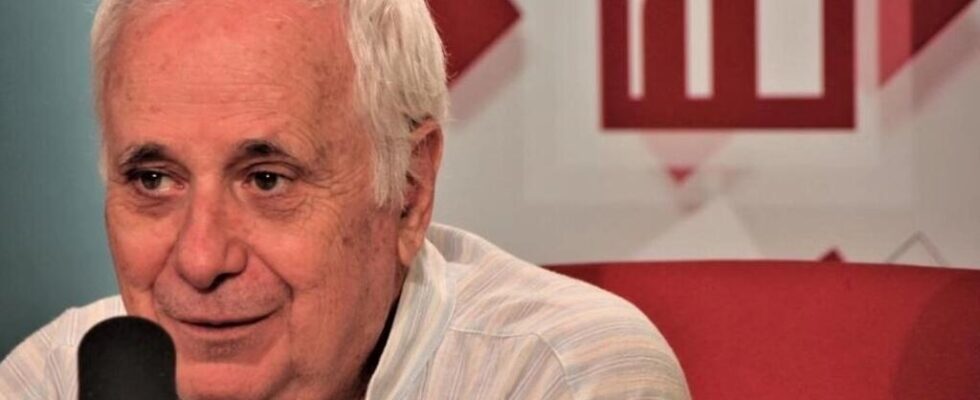Israeli historian Ilan Pappé saw his book The Ethnic Cleansing of Palestine reissued in France after French publisher Fayard pulled it from shelves. Pappé told RFI that this is part of a broader political climate that limits freedom of expression, both in Europe and in Israel.
5 min
By Mélissa Chemam and Jan van der Made,
RFI: Your book on ethnic cleansing in Palestine was republished in French by La Fabrique after its original publisher, Fayard, cancelled a reprint and withdrew it from bookstores. What was your reaction?
Ilan Pappé: I was surprised to learn that Fayard decided to stop reprinting and distributing the book just as it was becoming popular again. They used technical pretexts… This is related to the change of ownership at Fayard. In my opinion, this was a flagrant violation of freedom of expression. But it goes beyond my case, it has to do with the times we live in where ideologies and political positions restrict our freedom of expression – especially when it comes to the Palestine.
The topic of anti-Semitism is high on the political agenda of both the right and the left in France. How do you see this?
I follow the debates in France, and the instrumentalization of anti-Semitism appears as a problem. It is a superficial debate. All this is used as a political tool. By the left to dissuade people from voting for the right, by the right to seek Islamophobic support from voters. Anti-Semitism becomes a political “football”. It is a diversion from dealing with the real problem. By focusing on anti-Semitism, we avoid asking ourselves: what is Europe today? Can we accept positively the type of Europe that we ourselves created because we were colonialists? This is the kind of situation that one would have hoped that French society would confront, but it is not.
What inspired you to begin researching the fate of Palestinians after what they call the “Nakba,” the mass displacement caused by the 1948 Arab-Israeli war?
When I was choosing a PhD topic, it became clear to me that 1948 was a defining year in my country’s history. I started writing a PhD when Israel, Britain, France, the United Nations and the United States declassified documents from 1948 for the first time in 30 years. As historians, we were going to be exposed for the first time to documents that no one had seen before. And I was very curious to see what the archives would show compared to what I already knew from my studies, my university professors, my family, etc. I had no idea what I was getting myself into.
Was there a moment when you realized you had found something new?
I remember looking at documents in Britain very early on, and in particular the documents in the Israeli military archives. I saw things that were in total contrast to what I knew about 1948. I saw the first commands issued to the pre-state units of the Israeli army, the first orders issued by a high command to the units. And they were very clear: “Ooccupy the village, kill the men, expel the people “And then it happened again and again. And I realized that this was more than just a discussion of the facts of what had happened, but that it was undermining my old faith in the project of Zionism as a whole.
You support the “right of return” of the Palestinian people, enshrined in UN resolutions, but at the same time you reject the “two-state solution” that also underlies the UN position. Why?
This is no longer a practical solution. You only have to spend ten minutes in the West Bank to understand that there is no room for a Palestinian state there: there are almost 800,000 Jewish settlers scattered all over the place and some of the settlements are already cities. There is no way that an Israeli government would dare to expel these settlers. Palestine is a very small country. Dividing it is a colonialist idea, divide and rule. It has nothing to do with peace. And so, unsurprisingly, either it is imposed on the Palestinians or the Palestinians generally reject it. There is no point in continuing to demand a solution that goes against the basic needs of the indigenous peoples.
In December, South Africa sued Israel before the International Court of Justice (ICJ) for acts of “genocide” in Gaza. What do you think of this development? ?
I didn’t expect a Northern country to do this. They would never dare to do this. I think it’s the legacy of Nelson Mandela who said that South Africa would not be free until Palestine was free. In the long run, this is a very significant development, both that and the decisions of the ICC, the International Criminal Court, issuing arrest warrants for the Israeli prime minister. Benjamin Netanyahu [des mandats requis, et non émis, au moment de cet entretien, NDLR].
The ICJ said that the political elites in the Global North still refuse to do what many people in their own societies probably want them to do: to interfere heavily in Gaza and Palestine in general. Not as a mediator between the two sides, as the Americans and the EU do, but as the Global North did, at the time, in the case of apartheid South Africa, through sanctions and pressure. The ICJ was sending a message. It is symbolic. They know they do not have the power. But the message today is that the Court agrees with sections of civil society that consider Israel as an apartheid state, which must be treated as a rogue and pariah state.
